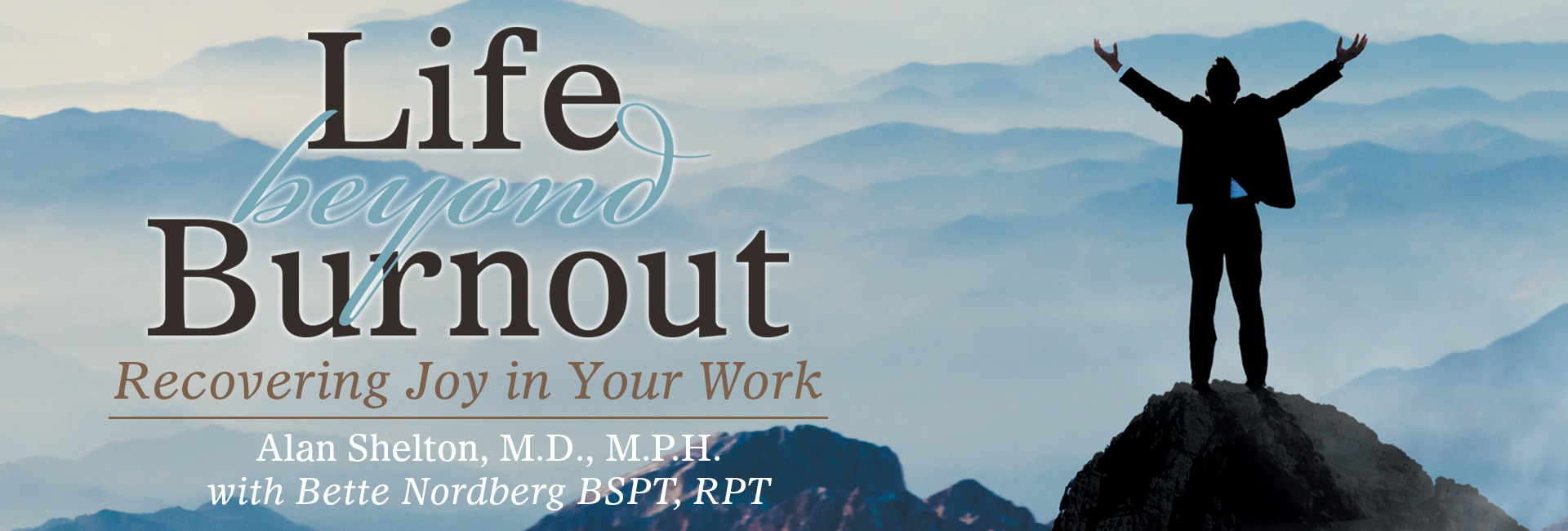Q&A
Interview with Alan Shelton author of Life After Burnout, Recovering Joy in your Work
Q: Why did you decide to write Life After Burnout? Is this a common problem?
A: Yes, burnout is a very common problem. Studies show that nearly three quarters of the working population have some level of burnout. And for some it is very serious. I experienced it myself and my path to recovery involved a spiritual healing. And this aspect—the need to feel spiritually connected–is not often dealt with, in the literature regarding burnout. There’s a lot of information about taking time off or refocusing on parts of the job that one would like. Perhaps working on relationships or areas outside of work to improve the balance of your life, getting more rest and exercise. There’s lots of advice given in these areas, but very little about the spiritual aspect, which is key to living a balanced life. After I recovered by reviving my personal connection to spirituality, I began speaking about this problem and there was such a high interest and positive response that I decided to write a book, to make this overlooked (and effective!) approach to burnout more readily available to people.
Q: How can you tell if you’re getting burned out at work? What are some common signs?
A: Burnout is essentially a loss of energy for one’s work. One feels exhausted and depleted at work, both physically and emotionally: you seem to have no reserves. Other signs include withdrawing from others and loss of job satisfaction. People who are burned out feel no sense of fulfillment, as if they are just going through the motions at work. As this wears on, they have increasing difficulty going to work, and focusing on their work.
Q: Are there any health risks to ignoring a case of burnout, like if you know you’re getting crispy but you can’t see a way out of your job situation?
A: Yes, definitely. Burnout can have serious consequences as people begin to make bad decisions in all areas of life. They may impulsively quit their job or have an affair, causing their loved ones to suffer. They may overuse alcohol or drugs, or even engage in compulsive spending or gambling. Any number of behaviors which appear similar to a mid-life crisis can occur, and these definitely have their fallout in terms of health, emotionally and physically for those involved. One of the most important things to know about all these attempts to feel better is that, essentially, burned out people are trying to regain meaning in their life.
Q: What should someone do if they, or someone they know, shows signs of burnout? How should you go about getting help?
A: Admitting the problem is a huge first step. Then they should begin taking steps to regain balance in their life. Usually this means exploring their spirituality. My book is a helpful resource for a person interested in doing this. But certainly talking with someone else who had been through a period of burnout, as well as evaluating their work and other aspects of their life with the help of a counselor could also be helpful.
Q: Why does reconnecting with spirituality help people recover from burnout?
A: Well, my book gives a much more interesting and detailed answer to this question! But briefly, spirituality brings enthusiasm and energy to work. You start by recognizing that your work is a calling, that your work has importance beyond the obvious outward appearance. A spiritual approach to life impacts your attitude, bringing joy and positivity. With spiritual development, your expectations and need for control are replaced with a relaxed sense of trust and openness. This attitude greatly reduces frustration and brings about a sense of empowerment. I believe spirituality is the key to enthusiasm and vitality at work.
Q: If I wanted to start making a change today––get more connected spiritually so that I don’t burn out––what’s a good way to start? Do I have to go to church, or join some religious group?
A: No, certainly not. As I say in the book, church or religion can be helpful, but the goal here is spirituality, a trust in the divine. Religion is a bridge or path to spirituality. By seeking to get connected spiritually, we’re actually looking for something that goes beyond religion. In my book I compare getting connected spiritually to getting fit physically. I propose a method to help people get more connected spiritually. Just as you would set aside time to exercise in order to be more fit physically, you can begin to “get spiritually fit” through setting aside a time of prayer and meditation. To carry the analogy further, if you wanted to stay physically fit, you’d adopt a healthy diet and avoid certain bad habits. To stay spiritually connected requires a “diet” that feeds your spirit. A healthy spiritual diet might include participating in religious ceremony, attending church services, reading inspirational material, listening to uplifting music, spending time in nature, and serving those who are less fortunate. In terms of bad habits, in my book I discuss several habits that can be harmful to your spiritual health, just as habits like smoking or drinking too much alcohol can hurt your physical health. The habits of complaining, holding a grudge and worrying can erode a person’s spiritual health over time, creating fertile ground for frustration and burnout. Alternatively the habits of being grateful, forgiving, and trusting provide great spiritual nourishment!


